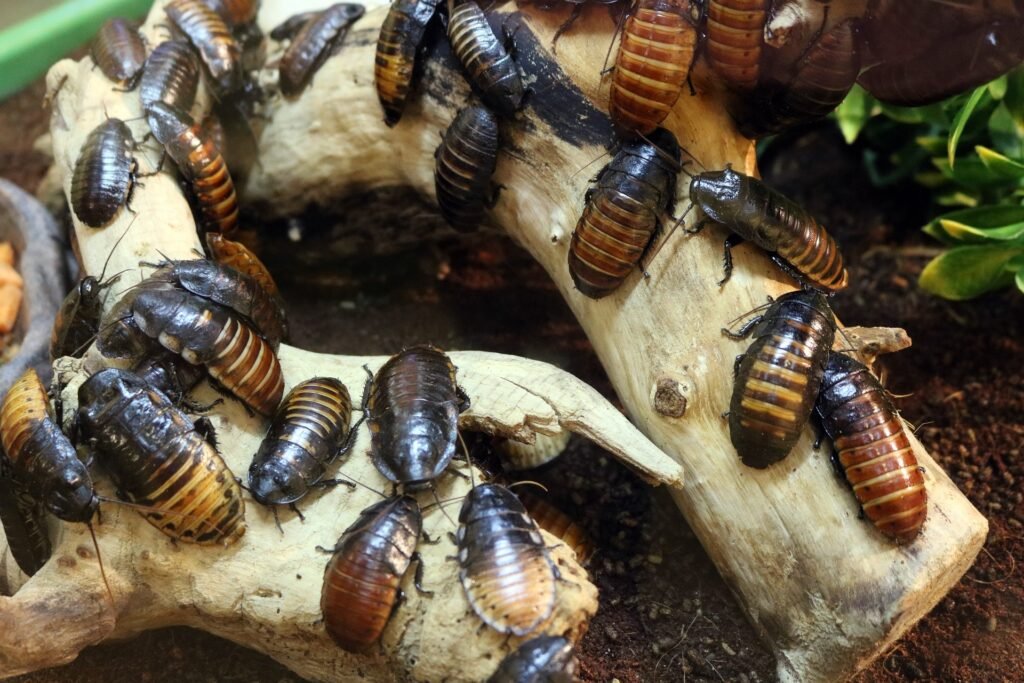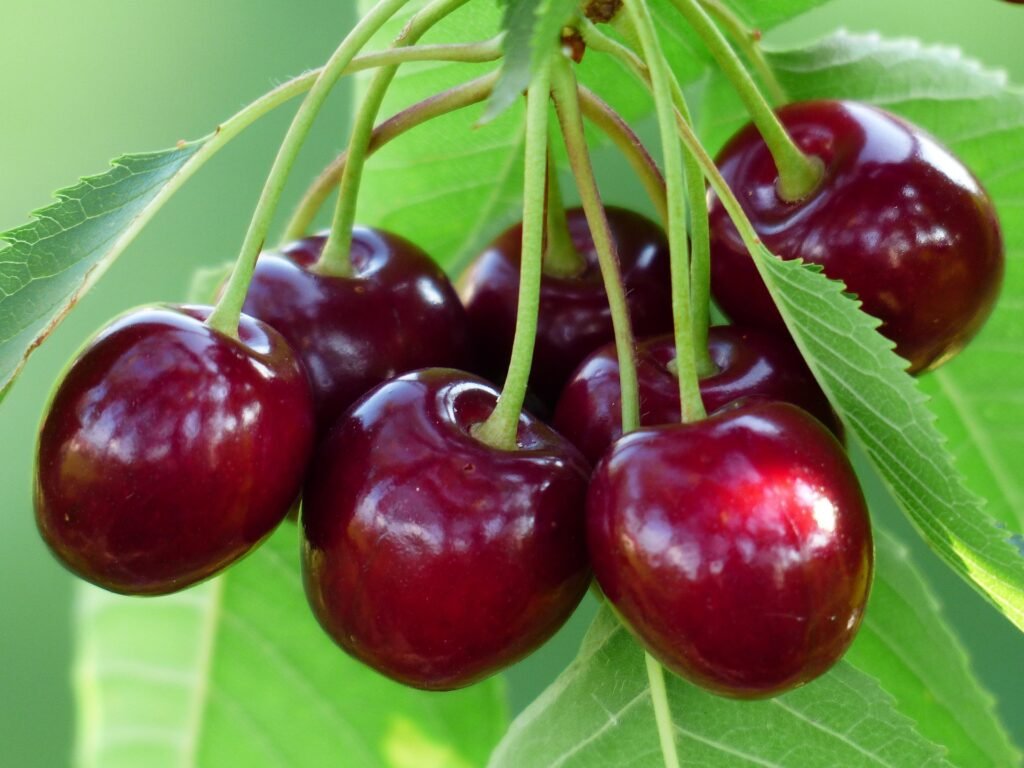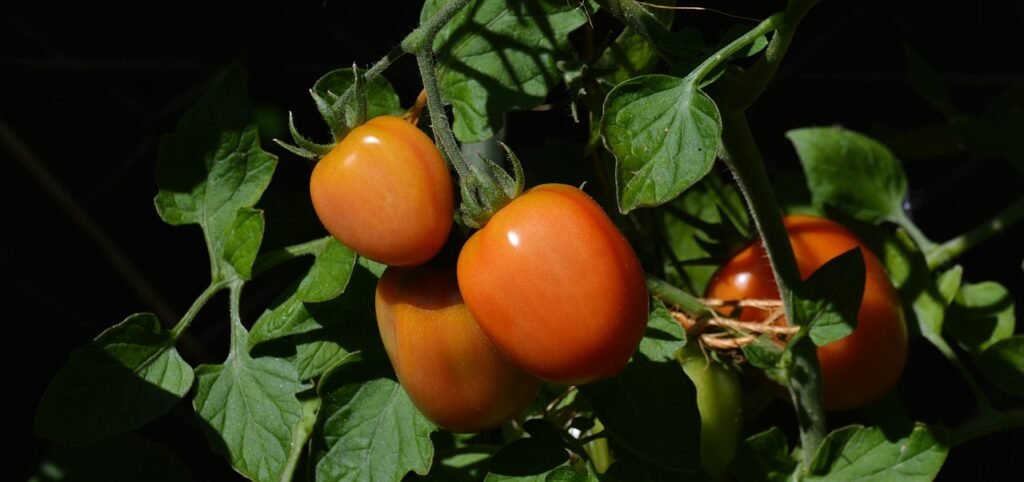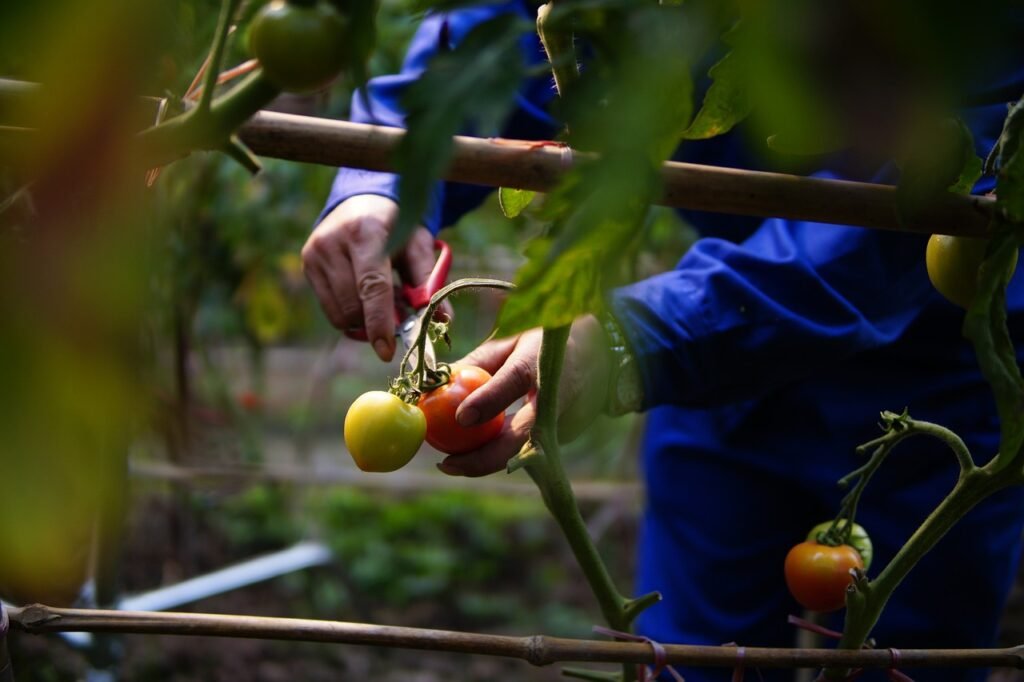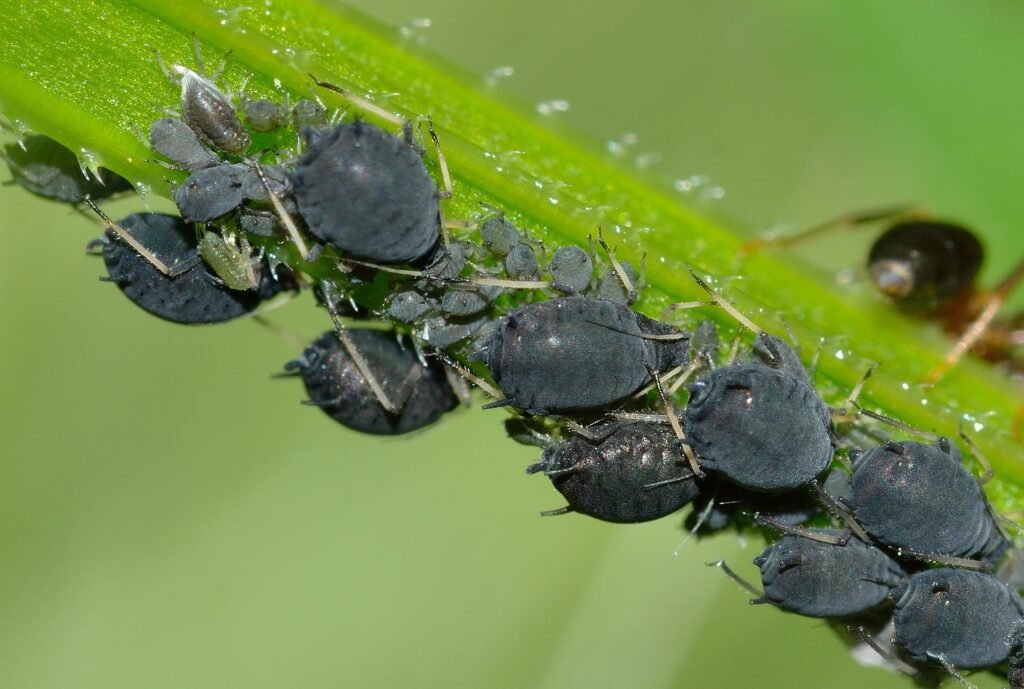
Aphids are a persistent problem for houseplants and gardens. These tiny pests can quickly spread, damaging your plants, seeds and turning them vulnerable to disease. But you can control aphids properly with the scientific knowledge and tools. I will explain everything you need to know about aphids, how to identify them, the harm they can cause, and the best ways and tips to keep them off your plants.
What Are Aphids?
Aphids are small and soft-bodied insects that feed on plant sap and plasm. They vary in color and mostly appearing green. But they can also be black, brown, red or yellow. These pests are found on the undersides, sometimes upper sides of leaves and stems. Aphids are sneaky but spread quickly. Even a small number can quickly turn into an infestation, putting your houseplants at diseases.
What Do Aphids Do to Plants and Their Harmful Sides
Aphids can cause significant damage to plants. They feed on plant sap, which weakens and damages the plant over time. Let’s we know how aphids affect plants and the different ways they cause harm.
Sucking Sap and plasmas from Plants
Aphids feed by sucking sap from plants. Sap provides the nutrients and water plants to grow. When aphids pierce the plant’s surface, they imbibe these nutrients, which weakens the plant. At a time, these causes leaves to wilt, yellow or curl. The plant may also lose vigor and stop growing rapidly.
Stunting Growth
Because aphids steal nutrients, plants can’t grow as normal ways. You may notice stunted growth or misshapen leaves. If aphids aren’t removed, they can deaden a plant to the point where it can no longer support new growth. Aphids can leave your plants looking thin with sparse foliage.
Spreading Diseases
Aphids move from plant to plant for why they spread diseases. Many of these diseases are viral and can spread through the entire plant. Symptoms of these diseases can include yellowing, curling or stunted growth. In severe cases, the plant may die or almost die. Controlling aphids helps prevent the spread of plant diseases and affected.
Producing Honeydew
Aphids excrete a sticky substance called honeydew. Honeydew attracts other pests like ants and insects. It also leads to mold growth on leaves named as sooty mold. This black mold covers the leaves, making it hard for the plant to breathe and absorb sunlight from the environment. This further weakens the plant and makes it more susceptible to other issues.
Attracting Ants
Ants are attracted to honeydew and often protect aphids from predators on the leaves. Ants create a symbiotic relationship with aphids where they protect the aphids to continue getting honeydew. This makes it even harder to maintain an aphid infestation. If you see ants on your plants and leaves it’s a sign you might have aphids.
Identifying Aphids on Houseplants
Recognizing aphids on houseplants is essential to controlling them as fast. Normally, you can see Aphids with your naked eye. They are often found on the undersides of leaves where they can hide from predators as well as another insects. Here I include some signs that aphids have infested your plants:
• Yellowing or curling leaves
• Adhesive residue on foliage or adjacent surfaces
• Black sooty mold on the plant and leaves
• The presence of ants around your plants and leaves.
Natural Control Methods for Aphids
Controlling aphids doesn’t need to involve severe chemicals. There are several natural methods that work properly for houseplants. Here I include a few ways to consider:
Water Spray
A strong spray of water can out aphids of your plants. Take your plant to a sink or use a garden hose to spray areas where aphids are visible. This is an easy and chemical-free method. But it works best for hardy plants in your garden.
Manual Removal
You can also remove Aphids by your hand. Use a damp cloth to wipe them off the leaves and stems. If you have a small infestation, manual removal can be effective and quick. Be sure to dispose of the aphids far from your plants as well as the garden to prevent re-infestation.
Nursing Natural Predators
If possible, you can nurse ladybugs or lacewings to the plant. These beneficial insects eat aphids, reducing their spread and growth. While this approach is more common and popular for outdoor plants, some indoor gardeners have successfully used it as well.
DIY and Organic Solutions for Aphids
If you are looking for more targeted methods, try also these DIY and organic solutions from this problem:
Insecticidal Soap
Insecticidal soap is efficient at killing aphids without harming plants. You can make your own by mixing a few drops of dish soap with water in a spray bottle. At first, you test it on a small part of the plant. Then spray the infested areas especially the undersides of leaves. This method works by breaking down the aphid’s outer shell and causing them to dehydrate and die.
Neem Oil
Neem oil is a natural insecticide that functions well against aphids.You can mix neem oil with water and a few drops of dish soap. Then spray this oil on the aphids. Neem oil works as a repellent. So it also deters aphids from returning on plants. You should be sure to apply it every few days until the aphids are totally gone.
Homemade Sprays
Garlic or chili sprays are effective DIY remedies. Firstly, you have to boil a few cloves of garlic or some chili peppers in water. Then strain the liquid and spray it on the aphids. These ingredients repel aphids due to their strong odor.
Preventive Measures Against Aphids
Taking preventive steps can help you keep aphids off your houseplants for good. I include here some ways to reduce the chances of an aphid infestation:
Regular Inspection
You should check plants regularly for aphids. Especially you look for the undersides of leaves and new growth. Early detection easily prevents a minor issue from becoming a major problem in houseplants. The more you inspect your plants, the less likely aphids are to spread and growth.
Maintaining Plant Health
Healthy plants are less capable to pests and insects. You should ensure your plants have the proper amount of light, water and sufficient nutrients. A strong and healthy plant is better able to protect Aphid infestations and other pest issues in houseplants.
Companion Planting Method
Certain plants naturally repel aphids. You can plant mint, garlic or chives nearby to deter aphids. This is especially impactful for plants near open windows. Those that spend part of the year outside.
Managing Severe Aphid Infestations
Sometimes aphid infestations get out of control. In these situations, more aggressive measures and steps should be needed:
Trimming Infested Leaves
If aphids have taken over parts of your plant, prune the infested leaves and cut off them carefully. This reduces the number of aphids on your plant and helps prevent them from extending to other parts and organs.
Isolating Affected Plants
You should Isolate plants with aphids to prevent the pests from spreading and growing. Moving the plant to a separate area helps contain the infestation and protects your other houseplants at your own home.
Using Horticultural Oils
Horticultural oils like dormant lubricant or summer oil can smother aphids. Use them carefully, following the manufacturer’s instructions on oil packaging cover. These oils are effective for severe infestations but should be a last resort.
Common Mistakes to Avoid When Controlling Aphids
Controlling aphids can be challenging but avoiding these common mistakes will make it easier. These are the following:
Overusing Insecticides
While insecticides can be effective very much can harm and damage your plant and lead to resistance in aphids. You need to start with natural methods first and only use insecticides as a last resort.
Ignoring Ants
If you see ants on your plants and leaves you likely have aphids. Ants protect aphids in exchange for honeydew. So you need to address both pests to eliminate the problems.
Applying Harsh Methods Without Testing
You should always test any spray or treatment on a small section of your plant first. Some plants are sensitive and may react negatively to certain treatments.
Though Aphids small but they can cause big problems for houseplants. The main point to controlling aphids is early detection, regular maintenance, proper inspection and a mix of natural remedies. Always you should keep an eye on your plants and using these methods. You can keep aphids at bay and enjoy healthy, thriving houseplants. Don’t let aphids get in the way of your green thumb, take action today to protect your houseplants. Happy Gardening!
